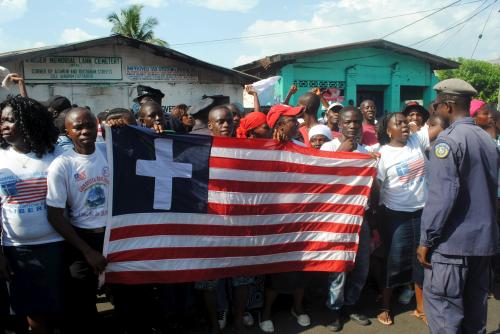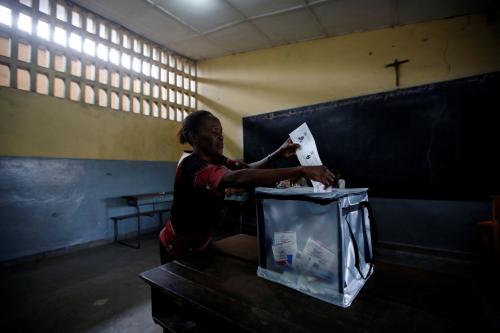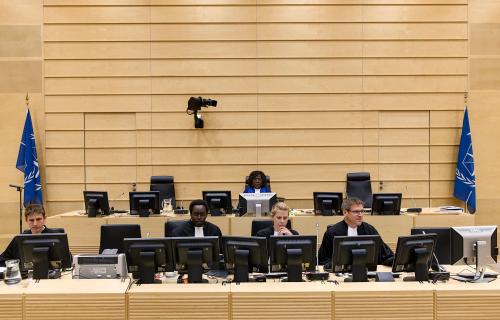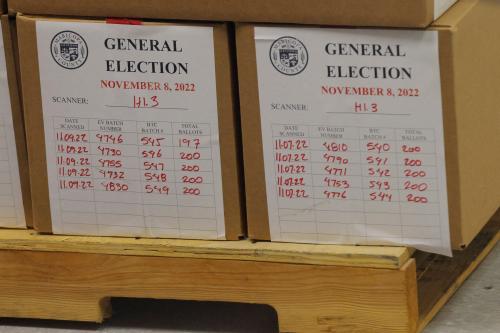U.S. investigation implicates South African officials in FIFA scandal
Last week’s United States’ Department of Justice corruption indictment of 14 representatives of FIFA and their business partners included accusations of South African government officials bribing football’s international governing body in order to secure the country’s role as the host of the 2010 World Cup. Unnamed senior South African government and bid officials reportedly transferred $10 million to Jack Warner, a former FIFA vice president and executive committee member, before a crucial vote on the location on the tournament. Mr. Warner and the South African government have categorically denied the charges, but another former FIFA executive committee member, Chuck Blazer, has admitted taking bribes ahead of the 2010 World Cup in South Africa. Similarly, South Africa’s Priority Crime Investigation Unit has now opened a preliminary inquiry into the charges after receiving additional evidence from the Freedom Front Plus, an opposition political party, of “irregular payments” by high-level government officials. Neither of these investigations publically identifies the South African officials implicated in the scandal, but speculation as to their identities has been a subject of national attention. South African Minister of Sport Fikile Mbalula has castigated the U.S. Justice Department’s investigation into FIFA overall, describing the corruption charges as Western countries “parading themselves as world policemen.”
The World Economic Forum on Africa 2015 highlights economic progress, but also identifies challenges to future success
At its 25th anniversary, this year’s World Economic Forum (WEF) on Africa took stock of Africa’s progress toward its economic and human development objectives over the past quarter century in order to better inform the continent’s future development policies and agendas. WEF Africa is considered one of the key defining conferences taking place in advance of September’s United Nations General Assembly meetings when the post-2015 development agenda will be announced. Under the theme “Then and Now: Re-imagining Africa’s Future,” members of African governments, civil society, business, and academia, including Brookings Africa Growth Initiative Director Amadou Sy, met in Cape Town from June 3-5—although there was a notable absence of heads of state due to a conflict with the African Union (AU) summit, scheduled to run from June 7-15, also in South Africa.
Participants discussed the multi-dimensional nature of the continent’s growth and poverty reduction trajectories, including demographic shifts, mobile technologies, youth unemployment, illicit financial flows, corruption, insecurity, and disease. On Thursday, the forum also released the Africa Competitiveness Report 2015, which highlighted that the continent’s overall competitiveness has remained stagnant and 15 of the 20 least competitive countries in the world are from Africa.
Burundi postpones presidential and parliamentary elections after increased pressure from the East African Community
Amid rising regional and international pressure, Burundi postponed the parliamentary and presidential elections originally scheduled for this month. Ever since April, when President Pierre Nkurunziza announced his bid for a third term, the nation has been hit by protests beset by violence, with substantial economic and humanitarian repercussions to both the country and the region. Until now, the government had pressed ahead with the elections despite international pressure and internal violence, making the argument that a delay in elections could risk further unrest.
Last week, the East African Community (EAC) held an emergency summit on Burundi, issuing a communiqué calling for postponement of the elections for a period of no less than a month and a half. The EAC was also joined by other major African players and regional bodies, including South African President Jacob Zuma, Chairperson of the African Union (AU) Commission Nkosazana Dlamini-Zuma, and U.N. Secretary General’s Special Envoy for the Great Lakes Region Saidi Djinnit. The summit also called for the disarmament of all armed youth groups allied to political parties as well as the cooperation of the AU and U.N. in supporting the proposed postponement and peace objectives. More globally, the European Union suspended its electoral observer mission to Burundi, and the Catholic Church withdrew priests appointed to help organize the elections.
Nigerian President Muhammadu Buhari’s first week in office marred by Boko Haram attacks and central bank currency fraud
President Buhari suffered a number of setbacks during his first week as the Nigerian president. While the new head of state sought regional collaboration to crush Boko Haram during visits to Niger and Chad this week, the terrorist group renewed its suicide bombing attacks in the northeast. In addition, the country’s top central bank executives were accused of currency fraud of roughly 8 billion naira ($40 million).
In his inauguration speech last week, President Buhari recognized endemic corruption and Boko Haram as key threats to the nation. Will these challenges undermine his ability to deliver on his campaign promises? To find out more, join us on June 8 at the Brookings Institution for a panel discussion on “Nigeria in transition: Prospects and challenges for the new government.”






Commentary
Africa in the news: South Africa in FIFA corruption scandal, WEF Africa convenes, Burundi postpones elections, President Buhari’s first week in office
June 5, 2015